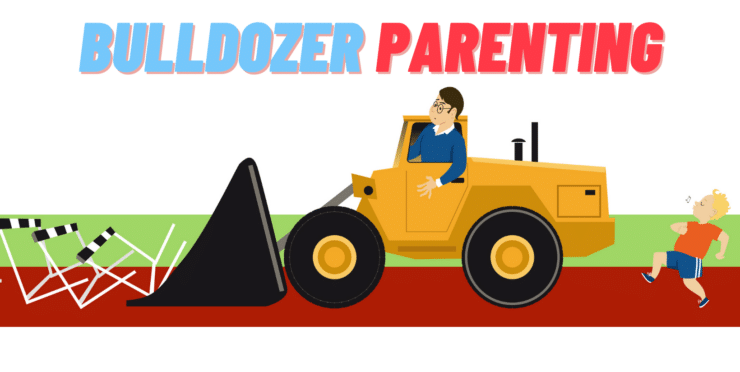Bulldozer parenting, also called “lawnmower parenting” or “snowplow parenting,” refers to an overprotective and overly involved style of parenting where parents attempt to clear all obstacles and challenges from their child’s life.
These well-intentioned parents aim to ensure a smooth, obstacle-free path for their children, intervening at the slightest sign of difficulty or distress. This may include resolving conflicts on their behalf, completing tasks for them, or influencing decisions to guarantee their success.
The Roots of Bulldozer Parenting
The motivation behind bulldozer parenting isn’t hard to imagine. It often stems from a place of love and concern. Parents who adopt this approach believe that they are shielding their children from hardships and setting them up for success.
The increasing competitiveness in education and the job market may contribute to this parenting style, as parents try to do anything to get their children a “leg up” in this cutthroat environment.
However, bulldozer parenting can have unintended consequences. By constantly clearing the way for their children, parents inadvertently hinder their ability to develop essential life skills, resilience, and self-reliance.
Impact on Children’s Development
While it’s natural for parents to want the best for their children, the consequences of bulldozer parenting can be far-reaching and detrimental to a child’s development in several ways.
Lack of Problem-Solving Skills – When parents continually intervene and remove challenges, children don’t learn how to overcome obstacles on their own. This can lead to an inability to develop problem-solving skills and a sense of helplessness when faced with challenges later in life.
Low Self-Esteem – When parents take over, children may internalize the message that they are not capable of handling situations independently. This can lead to low self-esteem and self-confidence, further impacting their ability to navigate life’s challenges.
Reduced Resilience – Resilience is built by overcoming adversity and learning from failures. Bulldozer parenting robs children of the opportunity to develop this essential trait, leaving them ill-equipped to bounce back from setbacks.
Strained Relationships – Overbearing parenting can cause strain on parent-child relationships, as children may feel smothered and resentful of their parents’ constant interference. This can lead to a lack of open communication and emotional distance between parents and children.
Poor Adaptability – In an ever-changing world, adaptability is crucial. By not allowing children to experience and learn from challenges, bulldozer parenting can hinder the development of their ability to adapt to new situations and environments.
Balanced Approach is Best Option
Although bulldozer parenting comes from a place of love, it’s essential for parents to take a step back and consider the long-term implications of their actions.
By promoting independence, resilience, and problem-solving skills, you’ll equip your children with the tools needed to thrive in a complex world.
Taking a balanced approach to parenting means providing support and guidance while also allowing children to make mistakes and learn from them. Encourage independence by giving age-appropriate responsibilities and allowing children to explore their interests. Foster open communication by discussing challenges and brainstorming solutions together.
Finally, remember that it’s okay for children to experience disappointment and setbacks – these are opportunities for growth and the development of resilience.











Add comment